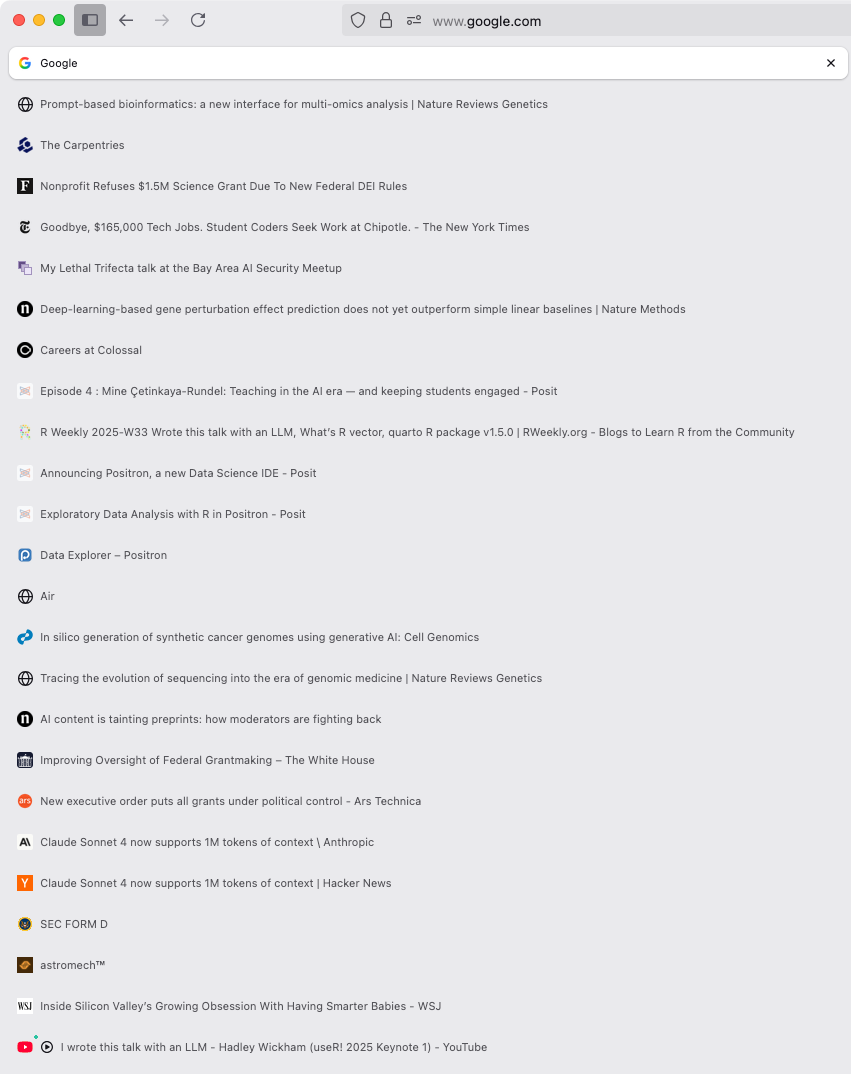Since I wrote about the new ATProto-powered Tangled Git forge a few months ago, it's come along by leaps and bounds! First, and most excitingly, they've added continuous integration via Spindles which are built in a nice ATProto style: The pipelines are Nix-only right now, so I braved using it [1] for a new GPS Exchange Format library in OCaml that I wrote.
Messages de Rogue Scholar

I’ve been sitting on this post for well over a year.
The Merge Users summary from the PKP OSLO Sprint, hosted by the University of Oslo in June 2025, is now available. Sprints involve PKP community members joining diverse groups to work on PKP software and support. The University of Oslo (UiO) hosted eight working groups at the PKP Oslo Sprint in June. This is a summary of one such group’s work.

Closing my browser tabs: papers, blogs, news stories, YouTube videos, tutorials, etc.
While reviewing a paper, I suddenly remembered the first replication of an experimental study I ever conducted. It’s 25 years old. In March 2000, I taught a workshop for a sociology class of 25 undergraduate students at Utrecht University.

You are why I write this newsletter, and I'd like to say thank you with an advanced reader copy of my debut novel. You helped make this a reality, so be one of the first to read the story.
Anmerkung zu dieser Rubrik: Das Open Research Office Berlin erstellt monatlich eine Übersicht über Termine und Veranstaltungen zu Open Access und Open Research in Berlin bzw. an Berliner Einrichtungen. Der Fokus liegt dabei auf unseren Partnereinrichtungen und auf Veranstaltungen, die sich an die Öffentlichkeit richten bzw.
Der Titel DeutschGPT – Deutschunterricht im Dialog mit Künstlicher Intelligenz ist kürzlich erschienen. Herausgegeben wird er von Hans-Georg Müller (Universität Potsdam) und Maurice Fürstenberg. Die Publikation wurde durch den Publikationsfonds des Landes Brandenburg gefördert und steht im Open Access zur Verfügung.
Academia today finds itself in a paradox. The ‘publish or perish’ mantra has spiralled into an uncalled race, where the finish line is quantity , and not quality . In this obsession to stack CVs with publication credits, research quality and integrity often suffer. Between 2018 and 2022, research articles witnessed a 22.78 per cent growth to 5.14 million. Yet concerns over research integrity persist.
This article aims documents how to set up the content management system WordPress to feed AI scrapers with nonsensical noise. The author has developed such a solution for Carrier-Bag.net, which now culminates in the WordPress plugin HalluciGen . Acknowledging the tremendous popularity of the WordPress publishing platform, our project decided to publish the code – free to use, on a liberal license and an open-source basis.
Click here for the version in English Hablamos con Nacho Pérez Alcalde, Vicedirector Técnico de Editorial CSIC, la editorial al mando de ´Boletín Geológico y Minero’, ganadora del Crossref Metadata Award en la categoría de Metadata Enrichment.